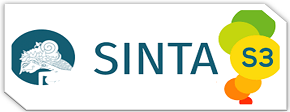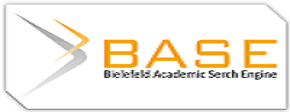The Implication of Business Digitalization, Organizational Learning, and Innovation Capabilities on the Firm Performance of MSMEs
DOI:
https://doi.org/10.30587/jurnalmanajerial.v11i02.6293Keywords:
Digitalization, Besiness, Organizational, Learning, Innovation, PerformanceAbstract
Background – In recent years, more businesses have been adopting digital technologies to streamline processes, enhance customer experiences, and stay competitive. The COVID-19 pandemic has accelerated this digital transformation, creating opportunities and challenges for MSMEs in Bandung, Indonesia. As MSMEs contribute significantly to employment and economic growth, they face obstacles in adapting to changing conditions in the technological and disrupted market landscape.
Aim – This study examines the implications of Business Digitalization, Organizational Learning, and Innovation Capabilities on the Firm Performance of micro in Small, and Medium Enterprises (MSMEs).
Design/ Methodology/ Approach – This research study was conducted in the City of Bandung, Indonesia, and collected survey data from 129 MSMEs that have undergone digital transformation. Non-probability sampling was employed in the study. The relationship between business digitalization, organizational learning, innovation capabilities, and firm performance was analyzed using SPSS software through multiple regression analysis.
Findings – The findings reveal that business digitalization significantly enhances firm performance by facilitating knowledge creation, collaboration, and operational efficiency for MSMEs. Organizational learning has a considerable positive influence on firm performance, improving decision-making, promoting innovation, and enabling successful adaptation. Similarly, innovation capabilities positively influence firm performance by driving the development of new products, cost-cutting measures, and differentiation.
Conclusion - MSMEs in developing their businesses are advised to use digital bases and develop innovative innovations
Research implication – this research contributes to the field of management studies by shedding light on the interconnectedness of business digitalization, organizational learning, innovation capabilities, and firm performance in the context of MSMEs. The findings provide actionable insights that can guide MSMEs towards improved strategies for success in a rapidly evolving business landscape
Limitations – This study focuses on MSMEs that have digitized their business and have undertaken organizational learning and innovation capabilities. From the time of the pandemic 2019 until 2023, without excluding other potential factors that may affect firm performance among MSMEs, such as market competition and external environmental factors.
References
Adner, R., & Kapoor, R. (2010). Value creation in innovation ecosystems: How the structure of technological interdependence affects firm performance in new technology generations. Strategic Management Journal, 31(3), 306–333. https://doi.org/10.1002/smj.821
Akman, G., & Yilmaz, C. (2008). Innovative capability, innovation strategy and market orientation: An empirical analysis in the Turkish software industry. International Journal of Innovation Management, 12(01), 69–111. https://doi.org/10.1142/S1363919608001923
Aljuboori, Z. M., Singh, H., Haddad, H., Al-Ramahi, N. M., & Ali, M. A. (2021). Intellectual capital and firm performance correlation: The mediation role of innovation capability in Malaysian manufacturing SMEs perspective. Sustainability, 14(1), 154. https://doi.org/10.3390/su14010154
Alam, K., Ali, M. A., Erdiaw-Kwasie, M., Shahiduzzaman, M., Velayutham, E., Murray, P. A., & Wiesner, R. (2022). Impact of ICTs on Innovation and Performance of Firms: Do Start-ups, Regional Proximity, and Skills Matter? Sustainability, 14(10), 5801. https://doi.org/10.3390/su14105801
Aneshensel, S. C. (2013). Theory-based data analysis for the social sciences. SAGE Publications, Inc. https://doi.org/10.4135/9781506335094
Antunes, H. D. J. G., & Pinheiro, P. G. (2020). Linking knowledge management, organizational learning and memory. Journal of Innovation & Knowledge, 5(2), 140–149. https://doi.org/10.1016/j.jik.2019.04.002
Bahta, D., Yun, J., Islam, M. R., & Ashfaq, M. (2020). Corporate social responsibility, innovation capability and firm performance: Evidence from SME. Social Responsibility Journal, 17(6), 840–860. https://doi.org/10.1108/SRJ-12-2019-0401
Calantone, R. J., Cavusgil, S. T., & Zhao, Y. (2002). Learning orientation, firm innovation capability, and firm performance. Industrial Marketing Management, 31(6), 515–524. https://doi.org/10.1016/S0019-8501(01)00203-6
Caputo, A., Pizzi, S., Pellegrini, M., & Dabić, M. (2021). Digitalization and business models: Where are we going? A science map of the field. Journal of Business Research, 123, 489-501. https://doi.org/10.1016/j.jbusres.2020.09.053
Central Bureau of Statistics. (2022) Indonesia's Economic Growth Quarter IV-2022.
Cooper, D. R., & Schindler, P. S. (2014). Business research methods. New York: McGraw-Hill.
Drnevich, P. L., & Croson, D. C. (2013). Information technology and business-level strategy: Toward an integrated theoretical perspective. Strategic Management Journal, 34(3), 288-308. https://doi.org/10.1002/smj.2027
Donate, M. J., & Sánchez de Pablo, J. D. (2015). The role of knowledge-oriented leadership in knowledge management practices and innovation. Journal of Business Research, 68(2), 360–370. https://doi.org/10.1016/j.jbusres.2014.06.022
Fernando, Y., Chiappetta Jabbour, C. J., & Wah, W.-X. (2019). Pursuing green growth in technology firms through the connections between environmental innovation and sustainable business performance: Does service capability matter? Resources, Conservation and Recycling, 141, 8–20. https://doi.org/10.1016/j.resconrec.2018.09.031
Ferreira, J., Cardim, S., & Coelho, A. (2021). Dynamic capabilities and mediating effects of innovation on the competitive advantage and firm’s performance: The moderating role of organizational learning capability. Journal of the Knowledge Economy, 12(2), 620–644. https://doi.org/10.1007/s13132-020-00655-z
Ferreira, J., Coelho, A., & Moutinho, L. (2020). Dynamic capabilities, creativity and innovation capability and their impact on competitive advantage and firm performance: The moderating role of entrepreneurial orientation. Technovation, 92–93, 102061. https://doi.org/10.1016/j.technovation.2018.11.004
Flores, L. G., Zheng, W., Rau, D., & Thomas, C. H. (2012). Organizational learning: Subprocess identification, construct validation, and an empirical test of cultural antecedents. Journal of Management, 38(2), 640–667. https://doi.org/10.1177/0149206310384631
Gaviria-Marin, M., Merigó, J. M., & Baier-Fuentes, H. (2019). Knowledge management: A global examination based on bibliometric analysis. Technological Forecasting and Social Change, 140, 194–220. https://doi.org/10.1016/j.techfore.2018.07.006
Goh, S. C. (2003). Improving organizational learning capability: Lessons from two case studies. The Learning Organization, 10(4), 216–227. https://doi.org/10.1108/09696470310476981
Grant, R. M. (1996). Toward a knowledge-based theory of the firm: Knowledge-based Theory of the Firm. Strategic Management Journal, 17(S2), 109–122. https://doi.org/10.1002/smj.4250171110
Hautala-Kankaanpää, T. (2022). The impact of digitalization on firm performance: examining the role of digital culture and the effect of supply chain capability. Business Process Management Journal, 28(8), 90-109. https://doi.org/10.1108/BPMJ-03-2022-0122.
Hindasah, L., & Nuryakin, N. (2020). The relationship between organizational capability, organizational learning and financial performance. The Journal of Asian Finance, Economics and Business, 7(8), 625–633. https://doi.org/10.13106/JAFEB.2020.VOL7.NO8.625
Hooi, L. W. (2019). Firm performance: Is organizational learning capability the magic wand? International Journal of Productivity and Performance Management, 68(8), 1411–1433. https://doi.org/10.1108/IJPPM-01-2019-0023
Horng, J.-S., Liu, C.-H., Chou, S.-F., Yu, T.-Y., Hu, D.-C. (2022). Role of big data capabilities in enhancing competitive advantage and performance in the hospitality sector: Knowledge-based dynamic capabilities view. Journal of Hospitality and Tourism Management, 51, 22–38. https://doi.org/10.1016/j.jhtm.2022.02.026
Hult, G. T. M., Hurley, R. F., & Knight, G. A. (2004). Innovativeness: Its antecedents and impact on business performance. Industrial Marketing Management, 33(5), 429–438. https://doi.org/10.1016/j.indmarman.2003.08.015
Isobe, T., Makino, S., & Montgomery, D. B. (2004). Exploitation, Exploration, and Firm Performance: The Case of Small Manufacturing Firms in Japan. Research Collection Lee Kong Chian School Of Business.
Jerez-Gómez, P., Céspedes-Lorente, J., & Valle-Cabrera, R. (2005). Organizational learning capability: A proposal of measurement. Journal of Business Research, 58(6), 715–725. https://doi.org/10.1016/j.jbusres.2003.11.002
Kalmuk, G., & Acar, A. Z. (2016). The effect of quality orientation and learning orientation on firm performance. Research Journal of Business and Management, 2(4), 455–487. https://dergipark.org.tr/en/pub/rjbm/issue/32451/360880
Kianpour, M., Kowalski, S. J., & Øverby, H. (2021). Systematically understanding cybersecurity economics: A survey. Sustainability, 13(24), 13677. https://doi.org/10.3390/su132413677
Kuang, Y., Fan, M., Fan, Y., Jiang, Y., & Bin, J. (2023). Digitalization, financing constraints and firm performance. Frontiers in Environmental Science, 11. https://www.frontiersin.org/articles/10.3389/fenvs.2023.1090537
Kusa, R., Duda, J., & Suder, M. (2021). Explaining SME performance with fsQCA: The role of entrepreneurial orientation, entrepreneur motivation, and opportunity perception. Journal of Innovation & Knowledge, 6(4), 234–245. https://doi.org/10.1016/j.jik.2021.06.001
Li, L., Ye, F., Zhan, Y., Kumar, A., Schiavone, F., & Li, Y. (2022). Unravelling the performance puzzle of digitalization: Evidence from manufacturing firms. Journal of Business Research, 149, 54–64. https://doi.org/10.1016/j.jbusres.2022.04.071
Li, Z., Liao, G., & Albitar, K. (2020). Does corporate environmental responsibility engagement affect firm value? The mediating role of corporate innovation. Business Strategy and the Environment, 29(3), 1045–1055. https://doi.org/10.1002/bse.2416
Levallet, N., & Chan, Y. (2018). Role of digital capabilities in unleashing the power of managerial improvisation. MIS Quarterly Executive, 17(1). https://aisel.aisnet.org/misqe/vol17/iss1/3.
Loebbecke, C., & Picot, A. (2015). Reflections on societal and business model transformation arising from digitization and big data analytics: A research agenda. Journal of Strategic Information Systems, 24(3), 149-157. https://doi.org/10.1016/j.jsis.2015.08.002.
Lyon, D. W., & Ferrier, W. J. (2002). Enhancing performance with product-market innovation: The influence of the top management team. Journal of Managerial Issues, 14(4), 452–469. https://www.jstor.org/stable/40604404
Martínez-Caro, E., Cegarra-Navarro, J. G., & Alfonso-Ruiz, F. J. (2020). Digital technologies and firm performance: The role of digital organisational culture. Technological Forecasting and Social Change, 154, 119962. https://doi.org/10.1016/j.techfore.2020.119962.
Meskhi, B., Bondarenko, V., Efremenko, I., Romanishina, T., Rudoy, D., & Olshevskaya, A. (2020). Impact of globalization and digitalization on the efficiency of environmental development of territories. E3S Web of Conferences. https://doi.org/10.1051/e3sconf/202021706012
Mikalef, P., Pappas, I. O., Krogstie, J., & Giannakos, M. (2018). Big data analytics capabilities: A systematic literature review and research agenda. Information Systems and E-Business Management, 16(3), 547–578. https://doi.org/10.1007/s10257-017-0362-y
Mohammad, H. I. (2019). Mediating effect of organizational learning and moderating role of environmental dynamism on the relationship between strategic change and firm performance. Journal of Strategy and Management, 12(2), 275–297. https://doi.org/10.1108/JSMA-07-2018-0064
Oliva, R., & Kallenberg, R. (2003). Managing the transition from products to services. International Journal of Service Industry Management, 14(2), 160–172. https://doi.org/10.1108/09564230310474138
Oloveze, A. O., Ugwu, P. A., Okonkwo, R. V. O., Okeke, V. C., Chukwuoyims, K., & Ahaiwe, E. O. (2022). Factors motivating end-users’ behavioural intention to recommend m-health innovation: Multi-group analysis. Health Economics and Management Review, 3(3), 17–31. https://doi.org/10.21272/hem.2022.3-02
O’Reilly, C. A., & Tushman, M. L. (2008). Ambidexterity as a dynamic capability: Resolving the innovator’s dilemma. Research in Organizational Behavior, 28, 185–206. https://doi.org/10.1016/j.riob.2008.06.002
Parker, G., Van Alstyne, M., & Jiang, X. (2017). Platform ecosystems: How developers invert the firm. MIS Quarterly, 41(1), 255–266. https://www.jstor.org/stable/26629646
Rafiki, A., Nasution, M., Rossanty, Y., & Sari, P. B. (2023). Organizational learning, entrepreneurial orientation, and personal values towards SMEs' growth in Indonesia. Journal of Science and Technology Policy Management, 14(1), 181-212. https://doi.org/ 10.1108/JSTPM-03-2020-0059
Rau, D., Flores, L., & Simha, A. (2021). A moderated-mediated examination of the relations among strategic planning, organizational learning, slack and firm performance. Management Decision, 59(9),2200–2216. https://doi.org/10.1108/MD-02-2020-0171
Salamzadeh, A., Hadizadeh, M., Rastgoo, N., Rahman, Md Mizanur., & Radfard, Soodabeh. (2022). Sustainability-Oriented Innovation Foresight in International New Technology Based Firms. Sustainability, 14(20). https://doi.org/10.1108/INMR-11-2021-0213.
Salunke, S., Weerawardena, J., & McColl-Kennedy, J. R. (2013). Competing through service innovation: The role of bricolage and entrepreneurship in project-oriented firms. Journal of Business Research, 66(8), 1085–1097. https://doi.org/10.1016/j.jbusres.2012.03.005
Sijabat, R. (2022). The Effects of Business Digitalization and Knowledge Management Practices on Business Performance: Findings from Indonesian Micro, Small, and Medium Enterprises. BISNIS & BIROKRASI: Jurnal Ilmu Administrasi dan Organisasi, 29(2) https://doi.org/10.20476/jbb.v29i2.1350
Shamim, S., Zeng, J., Shariq, S. M., & Khan, Z. (2019). Role of big data management in enhancing big data decision-making capability and quality among Chinese firms: A dynamic capabilities view. Information & Management, 56(6), 103135. https://doi.org/10.1016/j.im.2018.12.003
Suder, M., Duda, J., Kusa, R., & Mora-Cruz, A. (2022). At the crossroad of digital and tourism entrepreneurship: Mediating effect of digitalization in hospitality industry. European Journal of Innovation Management, (ahead-of-print). https://doi.org/10.1108/EJIM-08-2022-0422
Thompson, V. A. (1965). Bureaucracy and innovation. Administrative Science Quarterly, 10(1), 1–20. https://doi.org/10.2307/2391646
Verhoef, P. C., Broekhuizen, T., Bart, Y., Bhattacharya, A., Qi Dong, J., Fabian, N., & Haenlein, M. (2021). Digital transformation: A multidisciplinary reflection and research agenda. Journal of Business Research, 122, 889–901. https://doi.org/10.1016/j.jbusres.2019.09.022
Wan Hooi, L., & Sing Ngui, K. (2014). Enhancing organizational performance of Malaysian SMEs: The role of HRM and organizational learning capability. International Journal of Manpower, 35(7), 973–995. https://doi.org/10.1108/IJM-04-2012-0059
Wamba, S. F., Gunasekaran, A., Akter, S., Ren, S. J., Dubey, R., & Childe, S. J. (2017). Big data analytics and firm performance: Effects of dynamic capabilities. Journal of Business Research, 70, 356–365. https://doi.org/10.1016/j.jbusres.2016.08.009
Weldy, T. G. (2009). Learning organization and transfer: Strategies for improving performance. The Learning Organization, 16(1), 58–68. https://doi.org/10.1108/09696470910927678
Zheng, S., Zhang, W., & Du, J. (2011). Knowledge‐based dynamic capabilities and innovation in networked environments. Journal of Knowledge Management, 15(6), 1035–1051. https://doi.org/10.1108/13673271111179352.






























 P-ISSN: 2354-8592 __ E-ISSN: 2621-5055
P-ISSN: 2354-8592 __ E-ISSN: 2621-5055 
